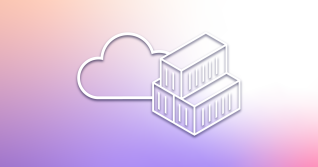We're working towards a closer relationship with Red Hat and we're excited about the possibilities. We think developers can reduce time spent coding while still increase productivity with technologies from GitLab and Red Hat. Here's what you need to know.
Why GitLab?
GitLab enables both the developers and operations teams to apply DevOps practices using a single application. Using one tool for the entire application’s lifecycle, i.e. right from development and deployment to operations, allows the organization to achieve operational efficiency and reduce deployment cycle times.
GitLab not only provides source code management (SCM) but it also offers CI/CD to make streamlined deployments to a container platform like Red Hat OpenShift while maintaining visibility into the deployment pipelines. Furthermore, with AutoDevOps, the GitLab application also addresses the organization’s security requirements through scanning and dependency mapping for the developed application. The ability to check the license of software being used, before deploying it in a production environment, helps organizations reduce their compliance risks.
Why GitLab with Red Hat?
Red Hat has a number of technologies in its portfolio. At the core is Red Hat Enterprise Linux (RHEL), an enterprise-grade Linux operating system (OS) platform used by many Fortune 500 companies that can be deployed across the hybrid cloud, from bare-metal and virtual servers to private and public cloud environments. RHEL makes it easier for the operations team to manage the upgrades, security patches and life cycles of servers being used to run applications like GitLab. Red Hat also provides the industry’s most comprehensive enterprise Kubernetes platform in Red Hat OpenShift. OpenShift is uniquely positioned to run a containerized application on a public or private cloud.
GitLab can accelerate software development and deployment of applications while RHEL can act as the more secure, fully managed OS that can scale with the application. The inclusion of new DevOps tools in Red Hat’s hybrid cloud technologies like service mesh empowers developers to iterate faster on a foundation of trusted enterprise Linux.
The GitLab solution, which includes CI/CD workflow, an AutoDevOps workflow, a container registry, and Kubernetes integration can be deployed on RHEL using install instructions and you can find out more about GitLab SaaS pricing model here. You can read our sales FAQ or contact our sales team if you have questions about the offering.
GitLab can be deployed on RHEL-based machines to provide organizations with DevOps infrastructure and collaboration tools. Our collaboration with Red Hat doesn't stop as a supported platform for the GitLab Server but Red Hat OpenShift can also be a target for our CI/CD and Auto DevOps workflows. Application container images can be pushed to our registry and used to deploy applications into Red Hat OpenShift.
What’s Next?
As GitLab and Red Hat increase their collaboration, we plan to announce the availability of GitLab Runner Operator for OpenShift in the near future. At GitLab, we have an engineering epic underway to develop first-class support for OpenShift.
With the upcoming product integrations with Red Hat, GitLab is striving to increase collaboration in the organization, increase developer velocity and reduce friction between teams, regardless of the deployment models of VMs or containers. The overarching goal is to help organizations improve their DevSecOps posture while significantly reducing security and compliance risks.



